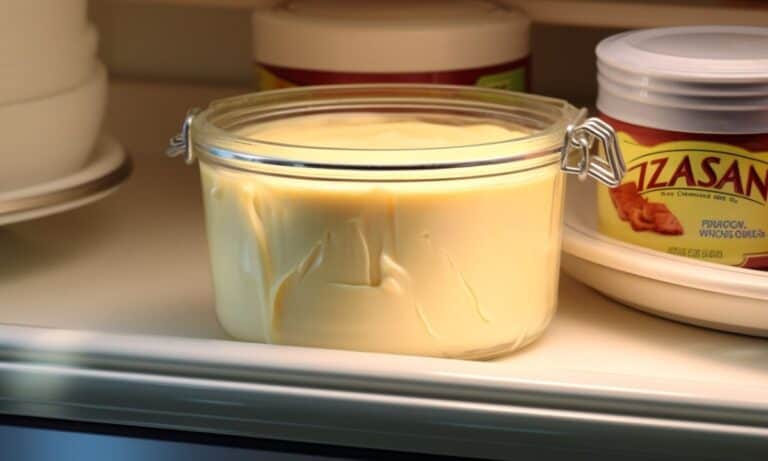27 Best Foods to Help With Headaches and Migraines
Addressing migraines effectively requires a multifaceted approach, considering various elements such as diet, sleep patterns, and adequate hydration.
Incorporating foods into your diet to help with headaches has been shown in recent research to potentially make a notable difference in managing various headache disorders. To alleviate discomfort, many people turn to specific foods to help with headaches, such as ginger and water-rich fruits like cucumbers.
Including chronic migraines and tension headache disorders, including chronic migraines and tension-type headaches.
Firstly, maintaining a balanced diet rich in B vitamins is a good idea. Foods like navy beans, black beans, sunflower seeds, and pumpkin seeds are excellent sources of B vitamins, including folic acid and Vitamin B6.
The American Migraine Foundation and the National Headache Foundation highlight the potential benefits of these nutrients in alleviating migraine pain.
Secondary headaches, often linked to an underlying condition, may also respond well to dietary changes.
Incorporating fresh fruit, green vegetables like Swiss chard, and essential fatty acids in seeds can benefit. These foods provide essential nutrients and help in weight loss and maintaining a plant-based diet, which has been linked to better overall health.
Vitamins C, D, and E also play vital roles. Sweet potatoes, for example, are a great Vitamin C and E source. A study in the Journal of Headache suggests that these vitamins, along with magnesium supplements, might help reduce headaches.
Foods like dark chocolate, in small amounts, provide magnesium and can satisfy food cravings without causing a headache trigger like high sugar content.
It’s also important to consider lifestyle factors such as drinking enough water to prevent dehydration-related headaches, like tension headaches and sinus congestion.
Limiting caffeine intake and opting for decaffeinated coffee could help, as excessive caffeine can lead to a ‘hunger headache’ or exacerbate a headache.
The Cleveland Clinic advises keeping a food journal to track the correlation between food intake and the frequency of headaches. This can be a practical first step in identifying personal headache triggers.
Additionally, ensuring you get enough sleep and managing stress are crucial in preventing headaches in the first place.
Some studies have also suggested supplements like coenzyme Q10 and nitric oxide for their potential benefits in headache management. However, consulting with healthcare professionals is always a good idea before starting any supplements or making significant dietary changes.
They can help identify any underlying causes of headaches and recommend the best way to address them, whether through diet, pain medication, or other treatments.
Foods that can trigger migraines
Specific diets and foods have been identified as potential triggers for migraines, which can exacerbate the effects, frequency, and severity of pain. These dietary triggers, including diets and food, are essential to be aware of when managing migraine symptoms and seeking headache relief. Magnesium intake is also necessary to consider.
Aged Cheese and Processed Meats
Aged cheese, such as blue cheese and cheddar, along with processed meats like salami and pepperoni, contain high levels of tyramine, which can be food triggers for migraines.
It’s essential to consider these foods when following a migraine diet or other diets that aim to identify potential food triggers.
Additionally, it’s worth noting that chocolate is also known to be a common trigger for migraines. This compound contributes to headaches and pain in susceptible individuals due to its vasoactive effects and mechanisms.
Tyramine Content
Tyramine is a natural substance found in various foods. Particular foods can lead to headaches in patients, as they can trigger the constriction and dilation of blood vessels in the brain, potentially causing migraines in some people.
Migraine patients should be mindful of diets containing foods like pickled products, smoked fish, and sure beans that are high in tyramine content. Consider an epigenetic diet to manage headaches.
Artificial Sweeteners and Additives

Artificial sweeteners like aspartame and additives such as monosodium glutamate (MSG) are recognized headache triggers for some migraine patients. These triggers can be linked to diets and food, affecting the mechanisms of migraines.
These substances are commonly found in gut diets, processed snacks, and certain packaged foods involving agencies. Being cautious about their food consumption and diets can help reduce the likelihood of patients experiencing headaches.
By being aware of these potential migraine triggers in various diets, patients prone to headaches or migraines can understand the mechanisms and make informed dietary choices to manage their condition effectively.
Migraine and diet
Dietary changes, including specific diets, can have a significant impact on the frequency and severity of headaches in migraine patients. Food choices play a crucial role in managing migraines.
Food Diary
- Keeping a food diary helps identify specific triggers for individual cases, especially for migraine patients who are looking to manage their diets and avoid headache triggers. It’s essential to note down any consumption of brown foods as well.
- It allows migraine patients, or migraineurs, to track their brown food intake and potential headache patterns that may trigger migraines on specific diets.
Dehydration and Dietary Choices
- Dehydration resulting from poor diets and food choices can lead to headaches and migraines in patients. Choosing brown foods can help improve dietary health.
- Consuming diets high in sodium or following imbalanced diets may contribute to headaches and dehydration in patients, triggering migraine attacks.
Epigenetic Diet
- The brown epigenetic diet focuses on how dietary choices influence gene expression without altering the genetic code, benefiting patients with specific food diets.
- Research suggests that certain brown foods in this diet, such as leafy greens and fatty fish, may help reduce headache frequency in patients.
Ketogenic Diet
- The ketogenic diet has shown promise in reducing headache symptoms for patients by altering food intake to low carbohydrate and high-fat consumption.
- Some studies indicate that the state of ketosis achieved through this diet might positively impact the pathogenesis of migraines in patients suffering from headaches.
Healthy Diet
- Embracing a healthy, balanced diet rich in fruits, vegetables, lean proteins, and whole grains is beneficial for managing headaches in patients.
- Nutrient-dense foods provide essential vitamins and minerals that support overall well-being while potentially alleviating headache pain.
Trigger Foods
- Certain foods like aged cheeses, processed meats, and alcohol are common triggers for migraine attacks, causing headaches. Additionally, artificial sweeteners can also contribute to headaches.
- Understanding these trigger foods empowers individuals to make informed dietary choices to minimize the risk of experiencing migraines.
Sodium Intake
- Excessive sodium intake, found in food, can lead to dehydration, which is linked to headaches, migraines, and other health issues.
27 Best Foods to Help With Headaches and Migraines
- Ginger: Known for its anti-inflammatory properties.
- Spinach: High in magnesium, which can relieve headache symptoms.
- Salmon: Rich in omega-3 fatty acids, beneficial for reducing inflammation.
- Sweet Potatoes: Packed with magnesium and potassium.
- Quinoa: A good source of magnesium and riboflavin.
- Almonds: High in magnesium.
- Avocado: Full of healthy fats and magnesium.
- Seeds (Pumpkin, Sunflower, Sesame): Excellent sources of magnesium.
- Yogurt: Can be high in magnesium and calcium.
- Oatmeal: A comforting food that’s also high in magnesium.
- Kale: Another green leafy vegetable high in magnesium.
- Watermelon: Helps with hydration, which can prevent headaches.
- Cucumbers: High water content for hydration.
- Mushrooms: Some types are rich in riboflavin (Vitamin B2).
- Cherries: Their anti-inflammatory properties can help reduce headache pain.
- Bananas: High in magnesium and potassium.
- Eggs: Contain coenzyme Q10 and B vitamins.
- Brown Rice: Brown rice contains magnesium and is an excellent whole-grain option.
- Bell Peppers: High in Vitamin C, which can help prevent migraines.
- Turmeric: Curcumin, which is known for its anti-inflammatory properties.
- Mackerel: Another fish rich in omega-3 fatty acids.
- Chia Seeds: High in omega-3s and magnesium.
- Dark Chocolate: Contains small amounts of caffeine and magnesium.
- Coffee: In moderation, it can help relieve migraine due to its caffeine content.
- Whole Grains: Generally high in magnesium and fiber.
- Legumes (Beans, Lentils, Peas): Good sources of magnesium and fiber.
- Blueberries: Antioxidant properties can help reduce inflammation.
Remember, while these foods can help some people with headaches and migraines, they might not work for everyone. Observing how your body reacts to different foods is essential, and consult with a healthcare professional for personalized advice.
Foods to avoid for migraine relief
Caffeine Withdrawal
Moderating coffee intake is crucial for migraine sufferers. Abruptly stopping or reducing caffeine consumption can lead to withdrawal symptoms, including severe headaches, which can trigger migraines.
Migraine sufferers should aim to maintain consistent caffeine levels and gradually reduce their intake if necessary.
Alcohol Consumption

Limiting alcohol consumption, especially red wine, helps prevent headaches. Red wine contains tyramine, a compound known to trigger migraines in some individuals.
For those prone to migraines, it may be beneficial to avoid or limit alcohol consumption to reduce the risk of starting a headache.
Processed Foods with MSG
Steering clear of processed foods containing monosodium glutamate (MSG) reduces the risk of migraines. MSG is a common food additive found in various processed and restaurant foods that can trigger migraine headaches.
It has been associated with triggering migraines in some individuals. Reading food labels carefully and opting for fresh, whole foods can help minimize exposure to MSG, which can trigger migraine headaches.
Impact of Cured Meats
- Processed meats like bacon or sausage contain nitrates that have been associated with triggering migraines in some individuals.
- Limiting the intake of cured meats could potentially help manage migraine symptoms effectively.
By making mindful choices about what they eat, individuals dealing with migraines can incorporate these foods into their diets to alleviate symptoms. A balanced approach that includes various foods may contribute to better-managing migraines.
Dietary supplements for migraine prevention
Conclusion
In conclusion, maintaining a balanced and nutritious diet can be crucial in managing headaches and migraines. By being mindful of potential trigger foods and incorporating migraine-friendly options into their meals, individuals may experience relief from the frequency and intensity of their symptoms.
Considering dietary supplements under the guidance of a healthcare professional could provide further support in preventing migraine attacks. It’s important to remember that each person’s migraine triggers and remedies may vary, so keeping a detailed food diary can help identify patterns specific to individual experiences.
Individuals are encouraged to consult a registered dietitian or nutritionist for personalized guidance on crafting a migraine-friendly diet plan. Furthermore, staying informed about the latest research on foods and supplements for relieving migraines is essential for making well-informed choices.
Individuals can take proactive steps toward improving their overall well-being by prioritizing holistic approaches to managing migraines through dietary adjustments.
These efforts, combined with medical advice, will empower individuals to understand their bodies’ responses to food better and make informed decisions about their dietary choices, especially in managing migraine.
FAQs – Foods to Help With Headaches and Migraines
Can Vitamins Help in Reducing Headaches and Migraines?
👉 Yes, specific vitamins can help. Vitamin B (in breakfast cereals and whole grains), Vitamin D, and Vitamin E (in nuts like almonds and seeds like sesame) reduce migraine symptoms.
How Does Blood Sugar Impact Headaches?
👉 Fluctuations in blood sugar levels can trigger headaches. Eating regular meals, especially a healthy breakfast, helps maintain stable blood sugar levels, reducing the risk of primary headaches.
Are There Any Specific Foods That Aid in Hydration and Headache Prevention?
👉 Yes, water-rich fruits like cucumbers and oranges help maintain hydration, crucial for headache prevention.
What Role Do Omega-3 Fatty Acids and Coenzyme Q10 Play in Managing Migraines?
👉 Foods rich in omega-3 fatty acids (like salmon and flax seeds) and coenzyme Q10 (found in meats and whole grains) can reduce the frequency and severity of migraines.
Is Caffeine Good or Bad for Headaches?
👉 It depends. While moderate caffeine can alleviate headache symptoms for some, excessive intake can worsen them. Switching to decaffeinated coffee might be beneficial for those sensitive to caffeine.
Should I Avoid Dairy Products If I Suffer From Headaches?
👉 Dairy products can be triggers for some individuals, especially aged cheeses. It’s important to monitor how your body reacts to dairy if you’re prone to headaches.
Can Alcohol and Processed Foods Trigger Headaches?
👉 Yes, alcoholic beverages (especially red wine) and processed foods with preservatives can trigger migraines and cluster headaches in some individuals.
How Do Lifestyle Factors Like Sleep Affect Headaches?
👉 A lack of sleep and high-stress levels are significant headache triggers. Maintaining a healthy lifestyle with adequate sleep can significantly improve headache management.
Is Keeping a Headache Journal Beneficial?
👉 Absolutely. A headache journal helps identify personal triggers and understand unique headache patterns, which is crucial for effective management.
Should I Consult a Healthcare Professional for Headache Management?
👉 Yes, consulting healthcare professionals, especially for chronic or severe cases, is essential for personalized advice and treatment. Institutions like the National Institute of Neurological Disorders and Stroke offer expert guidance.

Born and raised in a family of foodies, Georgia’s passion for cuisine was nurtured from a young age as she learned the intricacies of flavor and texture from her grandmother’s kitchen. As an adult, this early fascination blossomed into a full-fledged love affair with the culinary world.







